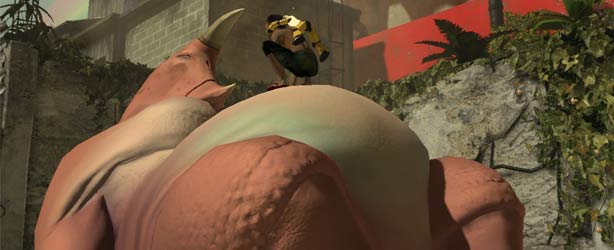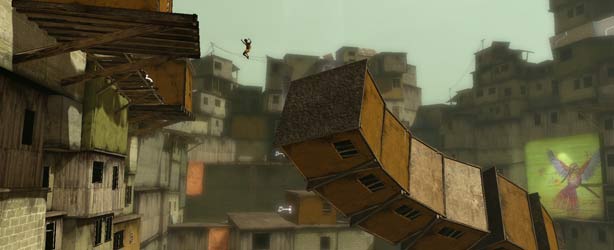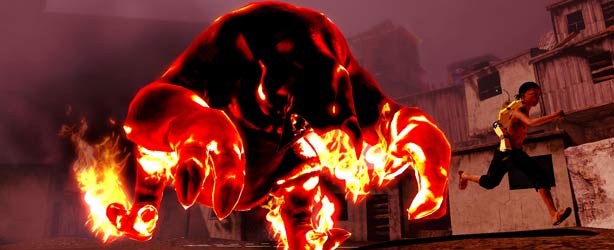
Papo & Yo Review
Developer: MinorityPublisher: Minority
Platform(s): PC (reviewed), Xbox 360
UK Price: £11.99
US Price: $14.99
Art Therapy is a method for people to turn their grief and anger into something constructive. It allows an outlet for emotional pain that would otherwise be locked away festering in the mind and poisoning a chance at recovery or acceptance and ability to ever put the past to rest. It's also a way of communicating your problems and your history in another form. It's a comforting way to get people to understand your situation if you've trouble conveying the reality with words.
Papo & Yo is about alcoholism and paternal abuse. That theme is central to the entire game. It's shared through playing as a young a child creating a fantasy world that allows him to escape from his real living situation, but this creation is flavoured by his real surroundings. He's altering environments he's familiar with and he replaces his father with a hulking giant monster. By day it's docile and occasionally helpful, but as soon as he succumbs to his vices he's a terrible threat to the child’s safety.

It's impossible to disconnect the art and the author here, as Papo & Yo was chaired by designer Vander Caballero, himself a victim of the same abuse as the autobiographical lead Quico. What he's had a hand in creating here is a game that serves as a poetic interpretation of his own life as a means by which people can relate and understand. He's admitted that his intentions were to help players in similar situations see that they aren't alone and that no matter the circumstances there is a way to eventually overcome and move on from the harm that’s been done.

If Papo & Yo had settled into a role as a game with a heavy subject matter and use that as a crushing emotional weight that’d be understandable, but what it masterfully does instead is it wears this as a layer to inform enjoyable gameplay. It adds context to a mechanic that brings about great puzzle design, it allows activity keyed into the theme of redesigning your surroundings to be better.

The game is a puzzle platformer. There's a great movement speed and there's even double jumps. It's using standard ideas of the genre, but doing that to fool you into experiencing something slightly deeper. It’s a great trick. You’ll spend so long actively enjoying the way that the game’s movement feels that when the subject matter inevitable turns a lot darker it’s far more impactful for the fun you’ve been having beforehand.

MSI MPG Velox 100R Chassis Review
October 14 2021 | 15:04









Want to comment? Please log in.